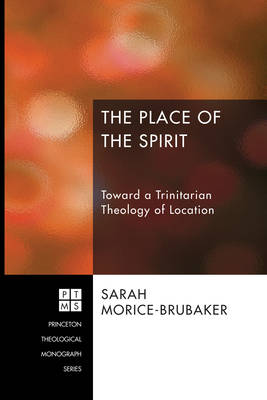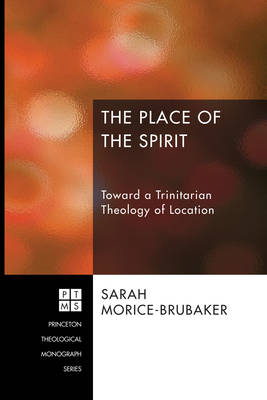
- Afhalen na 1 uur in een winkel met voorraad
- Gratis thuislevering in België vanaf € 30
- Ruim aanbod met 7 miljoen producten
- Afhalen na 1 uur in een winkel met voorraad
- Gratis thuislevering in België vanaf € 30
- Ruim aanbod met 7 miljoen producten
Zoeken
€ 33,95
+ 67 punten
Uitvoering
Omschrijving
Is there any way to talk theologically about the Trinity and place? What might the "placedness" of creation have to do with God's triunity? In The Place of the Spirit, Sarah Morice-Brubaker considers how anxieties about place have influenced Trinitarian theology--both what it is asked to do and the language in which it is expressed. When one is nervous about collapsing God into created horizons, she suggests, one is apt to come up with a model of trinity that refuses place. Distance becomes a primary way of situating the divine persons in relation to each other. Conversely, those theologians who wish to avoid a too-remote God likewise recruit Trinitarian language to suit that purpose. They, too, give that language a placial gloss, expressing triunity in terms of coinherence and mutual indwelling. And yet, suggests Morice-Brubaker, the question, "What is place, and how can one talk about God and place?" is underdetermined within much contemporary Trinitarian thought. Thankfully, this question has received full-on attention in other areas of ethics, philosophy, and systematic theology. This book calls for Trinitarian thought to avail itself of those insights and offers some ways in which it may do so.
Specificaties
Betrokkenen
- Auteur(s):
- Uitgeverij:
Inhoud
- Aantal bladzijden:
- 164
- Taal:
- Engels
- Reeks:
- Reeksnummer:
- nr. 197
Eigenschappen
- Productcode (EAN):
- 9781610978880
- Verschijningsdatum:
- 17/09/2013
- Uitvoering:
- Paperback
- Formaat:
- Trade paperback (VS)
- Afmetingen:
- 152 mm x 226 mm
- Gewicht:
- 235 g

Alleen bij Standaard Boekhandel
+ 67 punten op je klantenkaart van Standaard Boekhandel
Beoordelingen
We publiceren alleen reviews die voldoen aan de voorwaarden voor reviews. Bekijk onze voorwaarden voor reviews.











